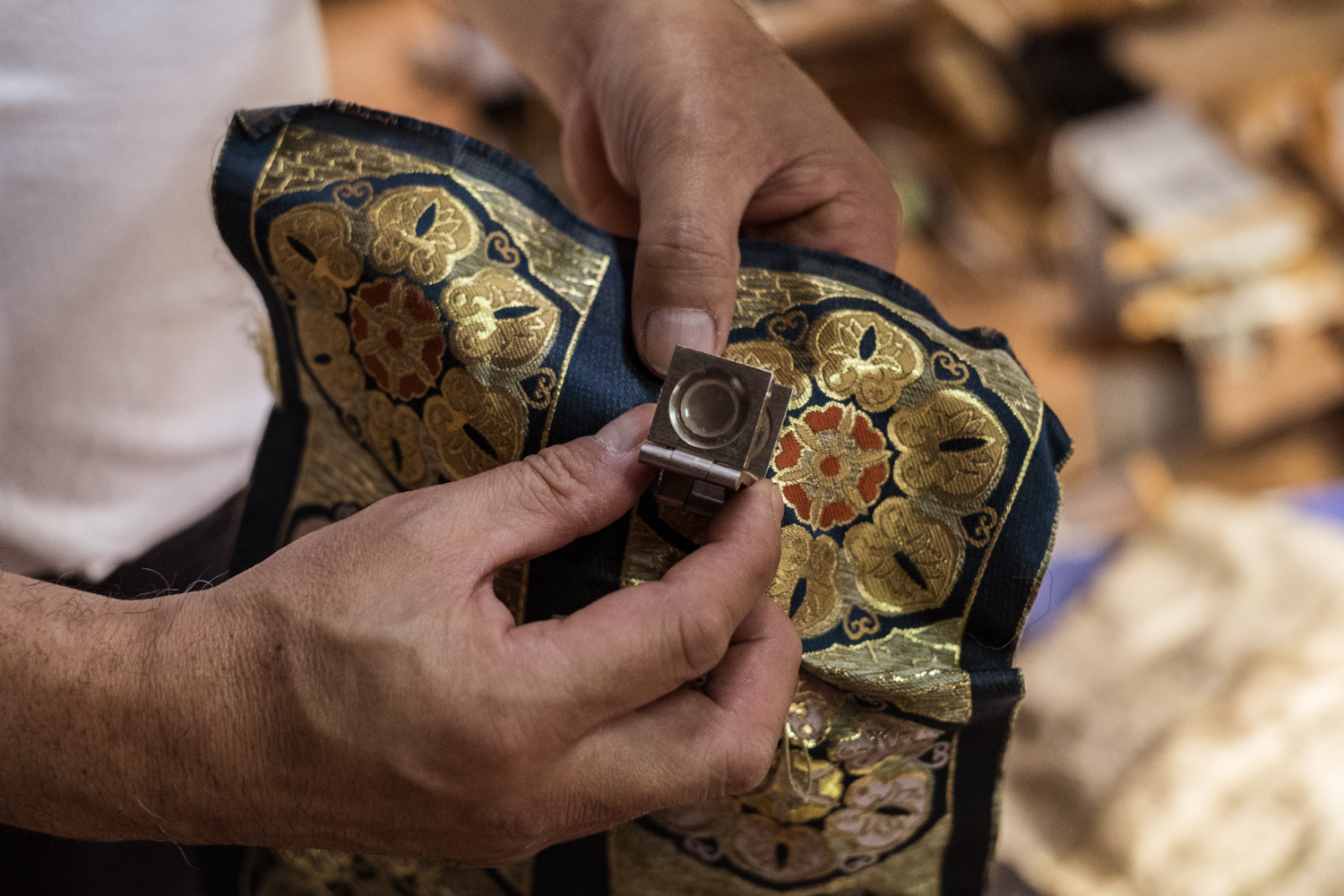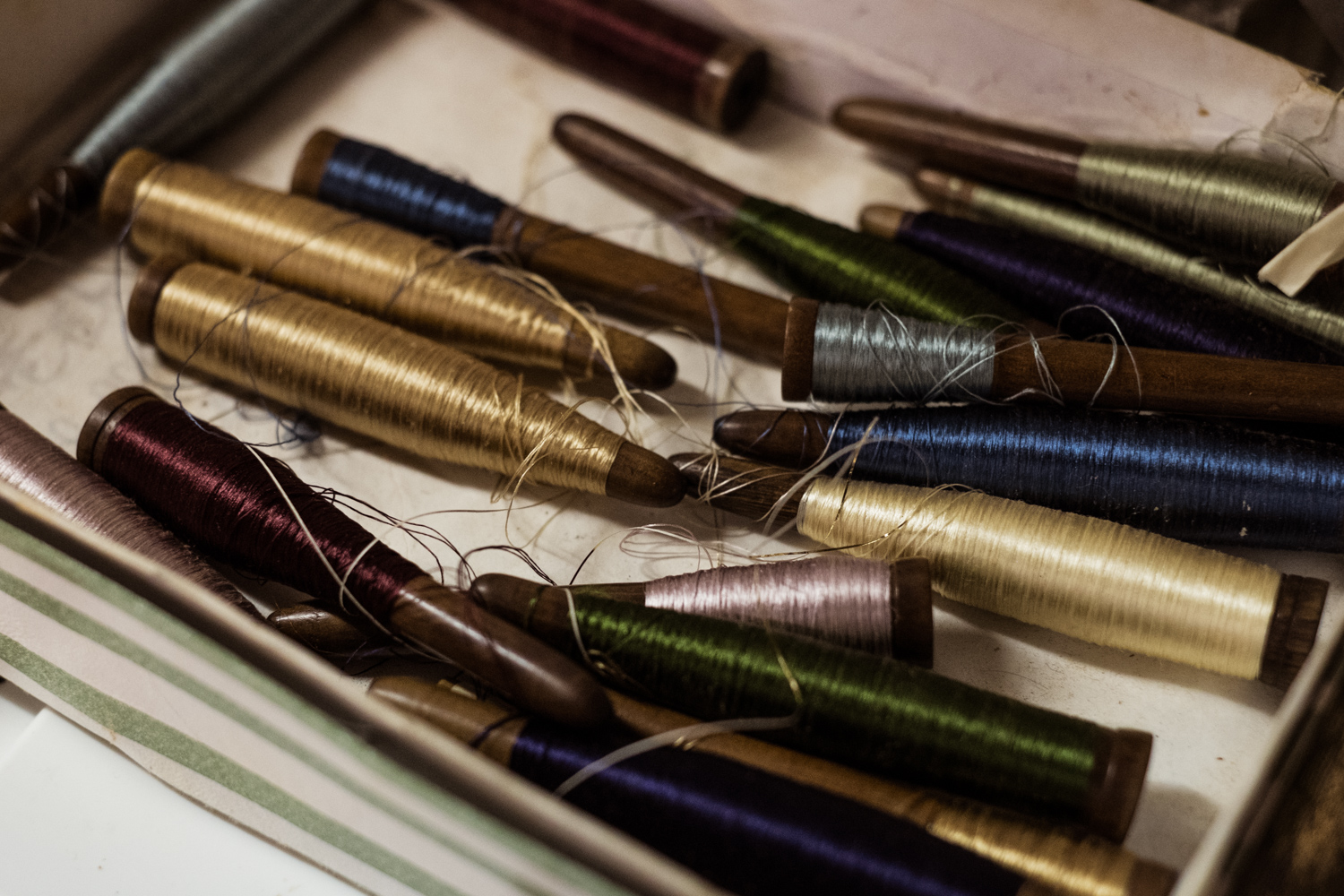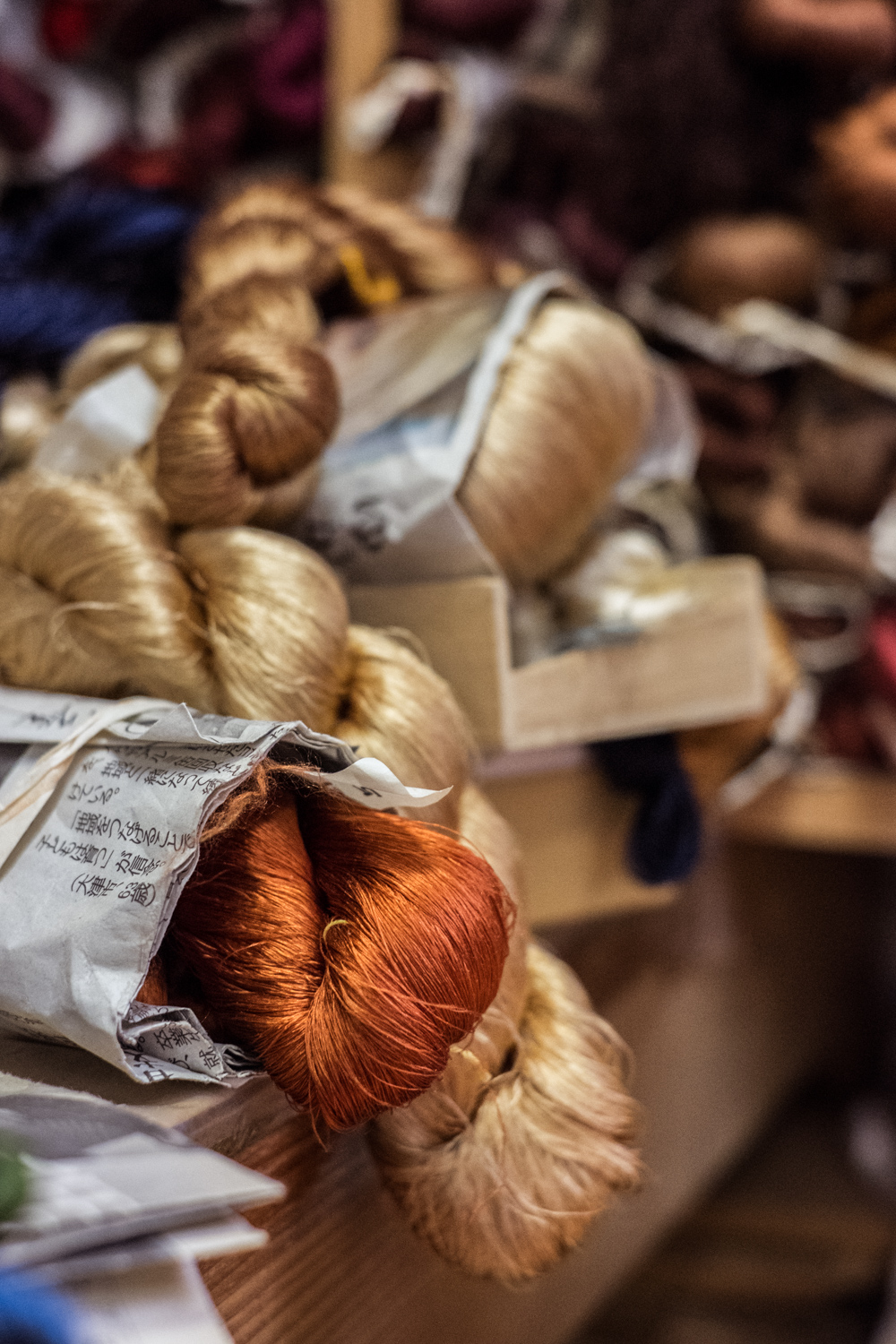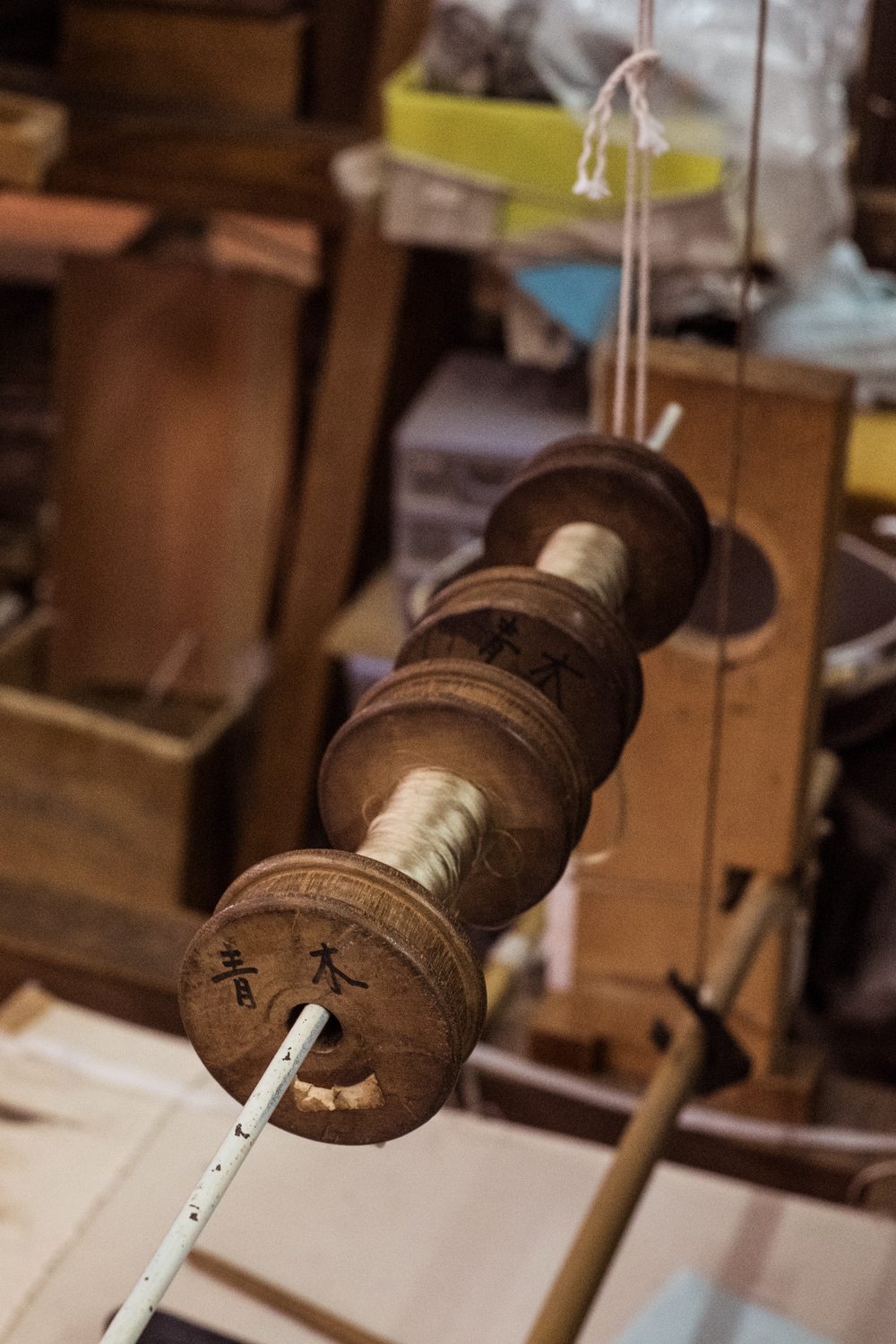Blog
Interview with Mikio Hirai, master craftsman of Nishijin weaving
2022/07/19
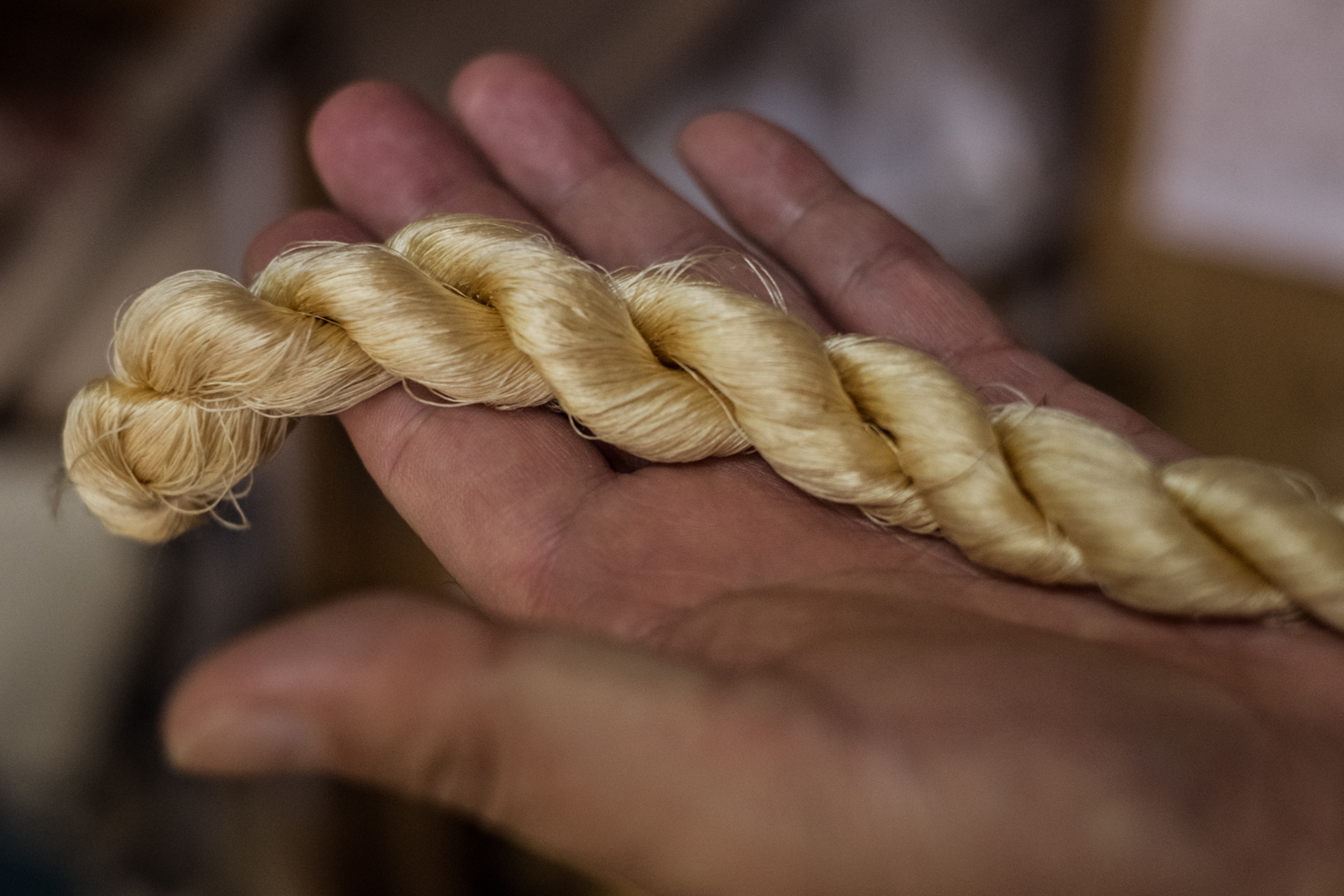
Please tell us a little about your background. What in your personal life has influenced you to choose your career?
I joined Hirai Weaving Store (current Orisho Hirai Ltd.) in 1993.
When studying at a university in Beijing, I was in the same class as the eighth-generation artisan of Imari ware and was encouraged to take over my family business by a person who also earns their livelihood from traditional crafts.
What was the biggest challenge that you encountered on your professional journey?
At first, to be able to weave enough products to be recognised as a proper master craftsman by our clientele. To gain credibility as a knowledgeable person to be able to speak on behalf of my father when clients had business meetings with us. Also, to carry on the unique positioning of our company that has been handed down from generation to generation.
What do you love about what you do?
The colour schemes, texture and precise dimensions of the patterns that have been passed on for generations.
What are the sources of inspiration for your creative work?
I always have my antennae up so that I can catch new ideas.
How have the events of the past couple of years affected your work and your industry?
We specialise in the weaving of fabrics for priest robes, but it was impossible for people to gather and hold any events at Buddhist temples. There were no more events at the head temples as well (for example, the head temple of the Jodo Shinshu Honganji sect is Nishi Honganji), so priests and followers (temple supporters) from all over Japan couldn’t visit, and the temples’ incomes have fallen dramatically, so has the new kesa production.
What are your plans and goals for the next couple of years? What do you wish to achieve?
I’d like to develop sales channels abroad.
Please tell us why would you recommend your work/products to craft and design lovers. What positive impact they can make on people’s lives?
Our fabrics are more three-dimensional than automatic machine weaves. Also, unlike machine weaving production, we can weave in small quantities, and one-off items (with a unique colour scheme, etc.) can be ordered.
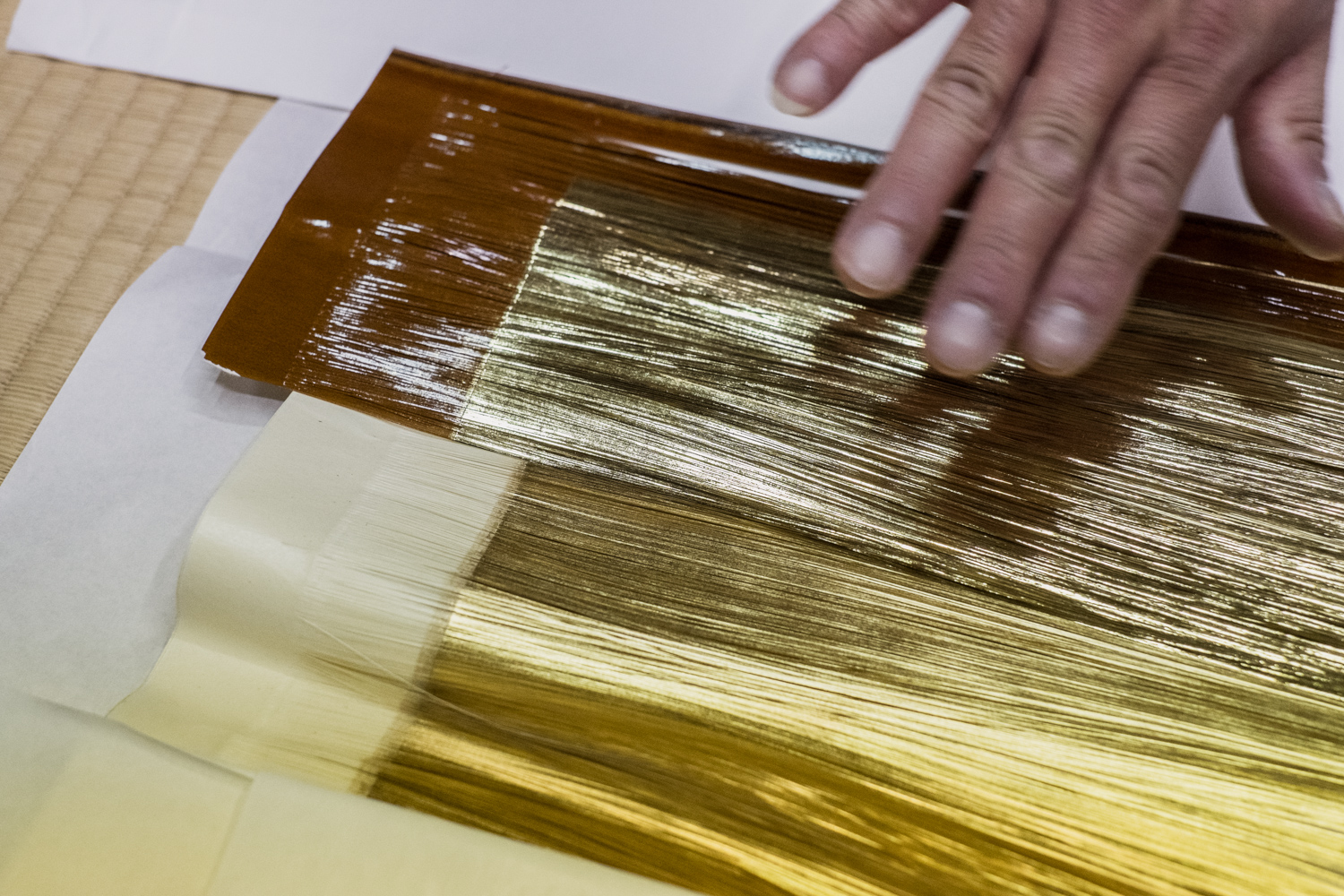
If you plan to visit Orisho Hirai and learn more about Nishijin weaving, book your experience here: ORISHO HIRAI
Interview, translation & images by Anastasiya Bulkavets (ArigatoCreative.co)
